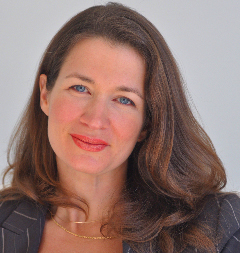A fellow Marriage Officiant recently shared a story with me about a couple who called off the wedding with just over a month to the big day. In this case, the bride had confessed that she had become unhappy because, in the planning of the ceremony, she had come to realize some things about her partner that she had either not known or had overlooked prior to the engagement. In this particular case, the client felt that her belief in gender equality had been violated in a way that revealed an irreconcilable incompatibility with her partner.
Gender equality (and equality between all people), is a distinctive philosophical feature and aspiration of Humanism and Humanist ceremonies. Indeed it is one of several key features cited by couples who contact me about specifically wanting a Humanist wedding. But what does gender equality mean in the context of marriage ceremonies and in particular, Humanist ceremonies? In part it means moving away from patriarchal stereotypes that dominate Hollywood movies and other forms of media. Your Humanist Officiant can help facilitate that equality in a number of ways (not all of which can be explained in the space of this short article).
One way we recognize gender equality is through language. I am still surprised when couples ask if they can be legally pronounced “man and wife†(it is rare). For starters, we now pronounce a couple “married†as opposed to husband and wife or man and wife or even wife and wife or husband and husband. And, as a Humanist Officiant, couples are given the choice (from an equality perspective) in terms of how they would like to be referred. It may be husband and/or wife or “life partners†or something else that moves away from gender references entirely.
In terms of walking down the aisle, no father is to “give a daughter awayâ€. While it seems innocent and sweet enough in a contemporary Western context, the historical notion of girls or women as property is out of sync with Humanist values. Of course a father…or mother, or parents, or sister, etc can walk either partner down the aisle. However, we are clear that, in the context of the representation of this idea, that any such person or persons are presenting the person they are walking down the aisle. No one is being given away like a piece of property.
Personal vows are tricky as they are supposed to come from the heart, and thus how can you censor what a couple “feels†they want to promise the other in a vow? Luckily I have never had a couple even try to use the word “obey†in their vows. I am amazed however, at how many concerned couples still ask me if they would be forced to put “obey†into their vows in a ceremony with me (as if that is the norm)! The quick answer is: No. Not ever. In fact, I could not allow it as it violates a key Humanist principle. Keep in mind as well that I always encourage couples to reverse the order of speaking each time they speak (for example: legal vows, personal vows, ring exchange, etc). Some couples still ask if the man can go first for everything in the ceremony. I will gently encourage going back and forth.
Another area we aspire to gender equality is through wedding rituals. Rituals can be a wonderful part of a life cycle ceremony such as marriage. Contrary to what many couples think, there are many amazing rituals that may seem religious (because they have been used by religious authorities in wedding ceremonies over time) but they are not or do not need to be. They are (and can be) often secular, culturally-derived and/or adapted to fit Humanist values such as gender equality. Consider the “breaking of the glass†in Jewish weddings. While men traditionally break the glass at the end of a wedding ceremony, many weddings I officiate have both partners break the glass together or break two glasses. Other rituals such as a ring warming, hand ceremony, sand pouring, candle lighting or plant watering involve both partners equally and we talk about the relationship during the ceremony in terms of mutual respect, love and care.
You might be saying now, that in 2016, this isn’t really novel stuff – or at least it shouldn’t be. Yet, I’m always a little surprised when women (in particular) I work with ask me to put their male partners (when they are male) first throughout a ceremony. They feel such requests are in keeping with “tradition†and thus “normal†and they don’t want to seem to be “rocking the boatâ€, especially around their wedding. While gender equality is still not adequately represented in Hollywood movies with respect to weddings, we all have a role to play with respect to perpetuating versus stopping the stereotypes and mythologies. As such, I encourage couples who may be a tad unsure (and women in particular) of where their partners stand (or even where they might stand) to go and rock that boat before the big day – to avoid surprises that are tougher to back out of once you are already legally married.

